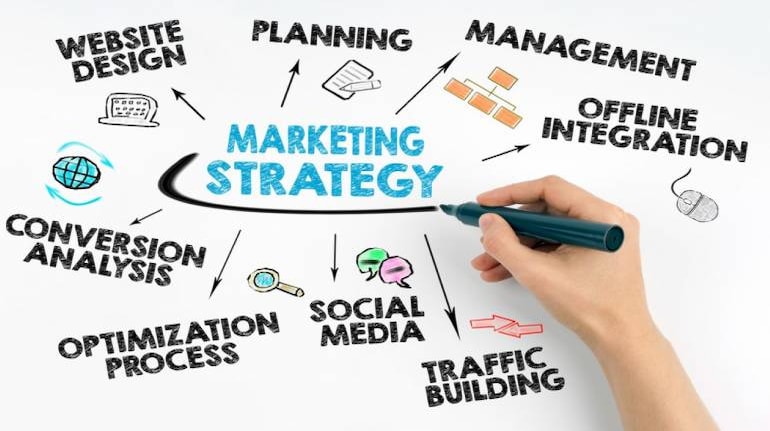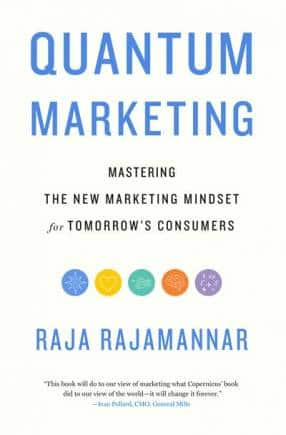



Why does the word “marketing” evoke suspicion in the minds of consumers? What makes them associate this aspect of business with manipulation, cheating and lack of ethics? To what extent are marketing professionals responsible for this perception? How can consumers be persuaded to change their opinion about marketing?
If these questions interest you, get hold of Raja Rajamannar’s Quantum Marketing: Mastering the New Marketing Mindset for Tomorrow’s Consumers (2021), published by Harper Collins Leadership.
What does “quantum marketing” mean? “It is a time when mistakes are exponentially magnified and success is as fleeting as the consumer attention span. In general scientific terms, ‘quantum’ describes an effect that cannot be explained by classical approaches. It has also come to mean an unmeasurable jump in speed or volume,” the author writes.
When these aspects are applied to marketing, it can be called “quantum marketing”. It encompasses the use of data analytics, artificial intelligence, blockchain, 5G, augmented reality, virtual reality, 3-D printing, the Internet of Things, drones, and more.
The author is the global Chief Marketing and Communications Officer of Mastercard and is also the president of the company’s healthcare business.
Before taking up this role, he worked with Anthem, Citibank, Diners Club North America, Unilever and Asian Paints. He is also a member of the board of directors of PPL Corporation, a US Fortune 500 company, and Bon Secours Mercy Health, a not-for-profit hospital system in the US and Ireland. The insights that form the core of his book come from this wide-ranging professional experience.
‘Brand Karma’
Stating that only 34 percent of consumers trust the brands they buy, the author admonishes the “marketing community itself” for making false claims about products and deceiving customers through attractive packaging.
There is an urgent need for soul-searching. He writes, “Where do we draw the line between being a smart business practitioner and being a con artist? Shouldn’t integrity and ethics be at the core of our practice? Can’t we be successful without employing exploitative, deceptive, or misleading tactics?”
This book intends to remind readers that customers are not fools—they can tell when they are being duped. They will switch to other brands if they are taken for granted or disrespected by marketers.

The author uses the term “brand karma” to emphasise the point that ethical practice is a sound investment. The advice he offers is particularly relevant for marketing departments facing a crisis during the COVID-19 pandemic.
“A crisis is not a time to sell. A crisis is the time to serve…If a brand sticks with people and serves them during their tough and troubled times, when the tide turns and the good times come back, they will stick with this brand. Crisis is not the time to be opportunistic. Crisis is when trust gets built or broken,” he writes.
The examples that back these pearls of wisdom come from his life and would be familiar to many who have faced similar situations.
When the author was working from home during the lockdown, he wanted to buy a stand for his tablet. The price of the product was $61 but the shipping price was $211. Before the pandemic, it was being shipped free. It is possible to argue that there is nothing wrong in making a profit when customers can be pushed into paying more. The downside is that they will remember how they were treated.
Marketing and data privacy
Ethical behaviour must extend to data collection and data analytics as well. Smartphones, digital assistants, fitness trackers and connected cars capture “unprecedented levels of data” that can be used to gain insights and design effective campaigns. But what does it mean for privacy? Marketers may find it beneficial to stick to this ground rule. “A brand has no right to snoop, and without consumers’ explicit permission, to sell. I am a big proponent of simplification of the privacy laws… but nothing is better than self-regulation and having an ethical North Star,” says the author.
The author, for instance, sets aside six hours a week to catch up with industry news. He also recommends taking mentoring sessions from subject experts. Staying up to speed with new developments is essential to be relevant in a fast-changing world because changes have implications for business.
Another recommendation, which seems quite valuable, is the one about having a global mindset. What does this mean in practical terms? Quantum CEOs can learn a lot from stints in countries other than their own. The experience gathered can help them understand “how cultures can manifest with different nuances, how workforce mindsets are so vastly different from culture to culture, how legal and regulatory environments vary”.
These inputs are precious because marketing, as this book suggests, is both an art and a science. If that sounds too cryptic, read the book to unlock the mystery.
Discover the latest Business News, Sensex, and Nifty updates. Obtain Personal Finance insights, tax queries, and expert opinions on Moneycontrol or download the Moneycontrol App to stay updated!